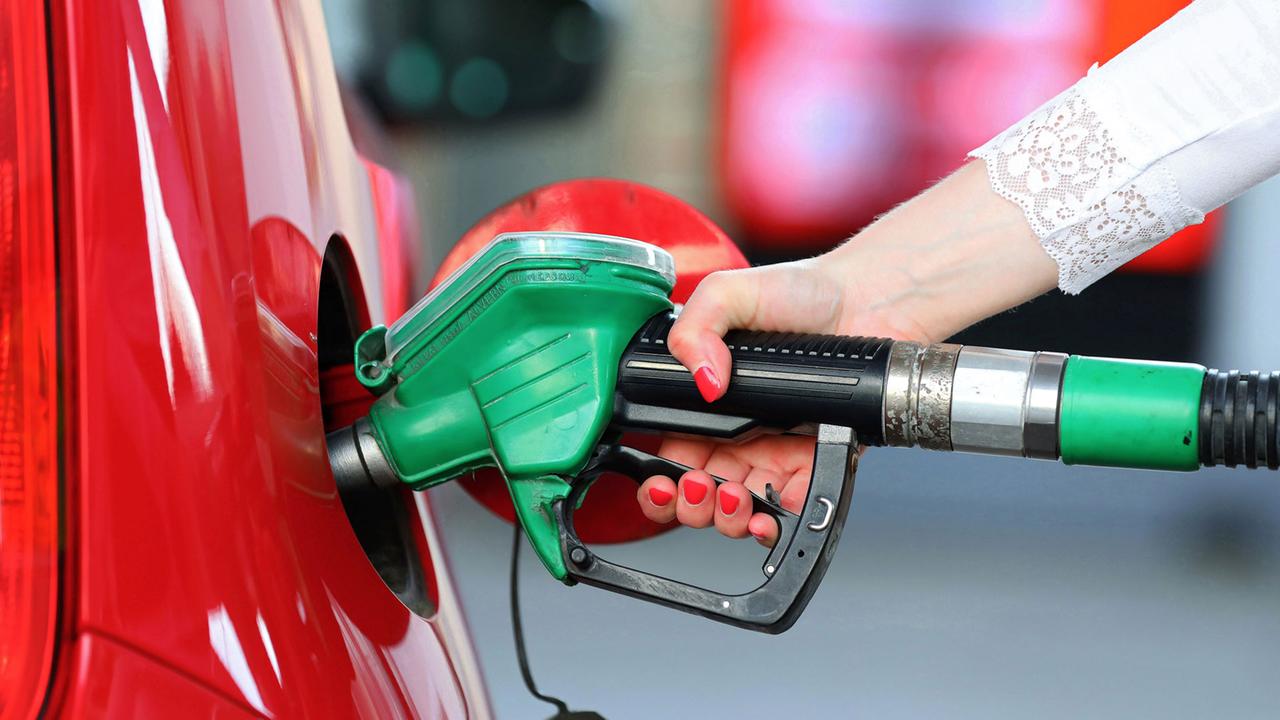faq
On January 1st, the CO2 price will rise from 45 to 55 euros per ton. This could affect the price development of gasoline, diesel, heating oil and natural gas. The future of relief climate money remains uncertain.
How does the higher CO2 price affect refueling?
According to the ADAC and the Fuels and Energy trade association (en2x), the CO2 surcharge for a liter of gasoline increases by around three cents, and that for a liter of diesel and heating oil by a little more than three cents.
In addition, the so-called greenhouse gas reduction rate increases at the turn of the year, according to en2x: “Fuel providers must further reduce greenhouse gas emissions in transport. This requires, among other things, a higher proportion of renewable fuels. The extent to which these changes are noticeable in consumer prices at gas stations and in the heating oil trade depends largely “depends on the development of world market prices for petroleum products.”
With regard to the increasing CO2 tax, the ADAC says:
It is not stated that petrol and diesel will actually become three cents more expensive because of this, because theoretically crude oil, for example, could become cheaper and fuel prices could therefore also fall. Then the increase in the CO2 tax would not be very noticeable.
The CO2 tax is only one component of which fuel prices are made up. Fuel prices have fallen since spring.
What to expect when heating?
Who with gas According to the comparison portal Verivox, heating costs around 0.22 cents more per kilowatt hour due to the higher CO2 price. Extrapolated to the heating requirements of a single-family home with a consumption of 20,000 kilowatt hours of natural gas, that is around 43 euros more per year.
To heating oil said the managing director of the HeizOel24 portal, Oliver Klapschus, that crude oil prices are expected to remain constant to slightly falling in 2025. From a current perspective, without major geopolitical crises or catastrophes, there is no reason for heating oil prices to fluctuate up and down by more than ten cents. The increase in CO2 pricing only plays a minor role in the price forecast. The surcharge is in the range of a normal weekly fluctuation in heating oil prices.
Why does the CO2 price exist?
The CO2 price for fossil fuels has existed in Germany since 2021. Germany should become climate neutral by 2045 so that international climate goals are met and the worst consequences of global warming are curbed. To achieve this, emissions of climate-damaging CO2 must be reduced significantly.
Gradually increasing CO2 pricing is intended to create an incentive for greater savings and a switch to climate-friendly technologies – for example, electric cars or more climate-friendly heating systems such as heat pumps.
The CO2 price is based on a national emissions trading system. Large companies that sell fuels such as natural gas, heating oil, gasoline and diesel must purchase emissions certificates for this purpose. This creates a price for every ton of CO2 emitted. The costs are passed on to the end consumers.
What happens next with the CO2 price?
According to the Fuel Emissions Trading Act, a price corridor is set for 2026 with a minimum price of 55 euros per emissions certificate and a maximum price of 65 euros per emissions certificate.
From 2027 there will be a paradigm shift: CO2 emissions trading for building heating and the transport sector will be introduced across the EU. The CO2 price is then determined on the market. Experts warn that there could be significant price jumps. A study by the German Institute for Economic Research states that due to strict European emissions caps and, in some cases, little progress in decarbonization in Europe, the CO2 price for fuels is expected to rise significantly. According to studies, prices of 200 euros per ton are possible.
A study by the Ecological-Social Market Economy Forum and the Öko-Institut states that in order to avoid a price shock, the national CO2 price should be increased at an early stage – this should be accompanied by social support.
When will climate money come?
The billions in revenue from CO2 pricing flow into the Climate and Transformation Fund, a special federal fund. This will be used to finance projects to switch to climate-friendly technologies – for example for replacing heating systems. The increasing income could be used to finance climate money for citizens to compensate for the rising CO2 prices.
The failed traffic light coalition made up of the SPD, Greens and FDP had promised this in the coalition agreement, but did not implement it. Energy must remain affordable for all consumers, said Jutta Gurkmann from the Federal Association of Consumer Organizations. “Anyone who cannot adapt their behavior needs support.” This applies, for example, to consumers who have no alternative to owning a car.
How could the money be paid out?
The federal government had announced that it would create the technical possibility of paying out money directly to citizens by the end of 2024. Finance Minister Jörg Kukies (SPD) said that the future federal government would have to decide on specific services.
Initially, only flat-rate payments should be possible, later payments differentiated according to income to subgroups of the population. Specifically, citizens' account details are also stored in the Federal Central Tax Office's database along with their tax IDs.
What do the parties want?
The Greens According to the election program, we want all people with low and middle incomes to receive a large part of the income from CO2 pricing back as climate money to compensate. “Climate money should be introduced as quickly as possible in the next legislative period.”
In the SPDThe election manifesto states that there will be households that will be particularly burdened by the rising prices for CO2 and will not be able to make the switch on their own. If the European regulation comes into force from 2027, appropriate measures – for example climate money – should be taken to ensure that no one is overburdened.
The union is aiming for a “climate bonus” to relieve the burden on consumers and companies. In addition, the CO2 revenue should be used to reduce electricity taxes and network fees.
The FDP wants to reduce the electricity tax to the EU minimum as a first step. It is also aiming to gradually reduce the EU minimum rates for energy tax on heating and fuels to zero in view of the trending increase in CO2 prices.
With information from the dpa news agency



